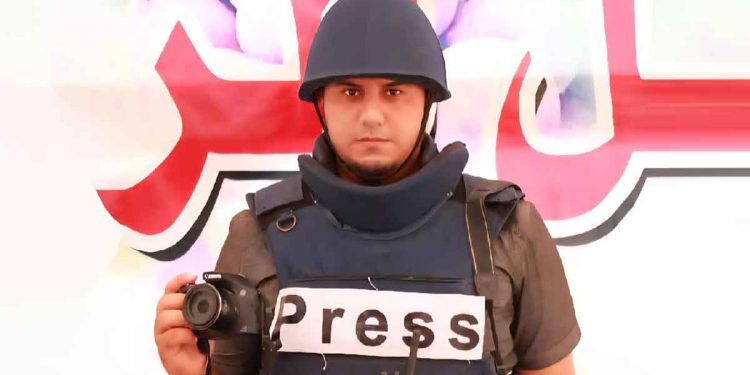Palestinian journalist Hassan Majdi Abu Warda was killed alongside members of his family in an Israeli airstrike on Sunday morning that targeted their home in the Jabalia Al-Nazla area in northern Gaza. Medical sources confirmed that Abu Warda died instantly as a result of the airstrike, which also claimed the lives of several of his relatives who were present in the house.
Abu Warda was among the journalists who continued to report on the conflict in Gaza under increasingly dangerous conditions. His death brings the total number of journalists killed since the onset of the current military campaign on 7 October 2023 to 220, according to local reports. Hundreds more have been injured or detained since the beginning of the hostilities.
The ongoing pattern of journalist fatalities, often resulting from direct targeting, has raised grave concerns among rights monitors. The repeated killing of media workers is taking place in parallel with attacks on press offices and communications infrastructure, significantly impeding the ability to document events on the ground.
These incidents do not align with the concept of incidental harm recognised in the laws of armed conflict. Rather, they indicate a pattern of deliberate targeting aimed at silencing independent reporting. International humanitarian law clearly stipulates that journalists operating in conflict zones are civilians and must be protected, unless directly participating in hostilities.
The current conditions in Gaza reveal a consistent military approach that includes direct attacks on individuals engaged in documenting violations. The killing of journalists and their family members, as in the case of Abu Warda, highlights the extent to which civilian life is being endangered and the lack of distinction being made between non-combatants and military targets.
As the situation continues to deteriorate, the role of the press remains critical. However, journalists in Gaza face threats not only to their own safety but to the survival of their families, their profession, and their capacity to bear witness. The targeting of media professionals amid widespread displacement, hunger, and collapse of essential services reflects a broader pattern of destruction that extends to civil society as a whole.
The protection of journalists in armed conflict is not only a legal obligation under international humanitarian law but a necessary condition for the documentation of potential violations. The deaths of those reporting from Gaza serve as a record of the price paid for telling the story, and underline the urgent need for accountability and protection of press freedom in conflict zones.


























